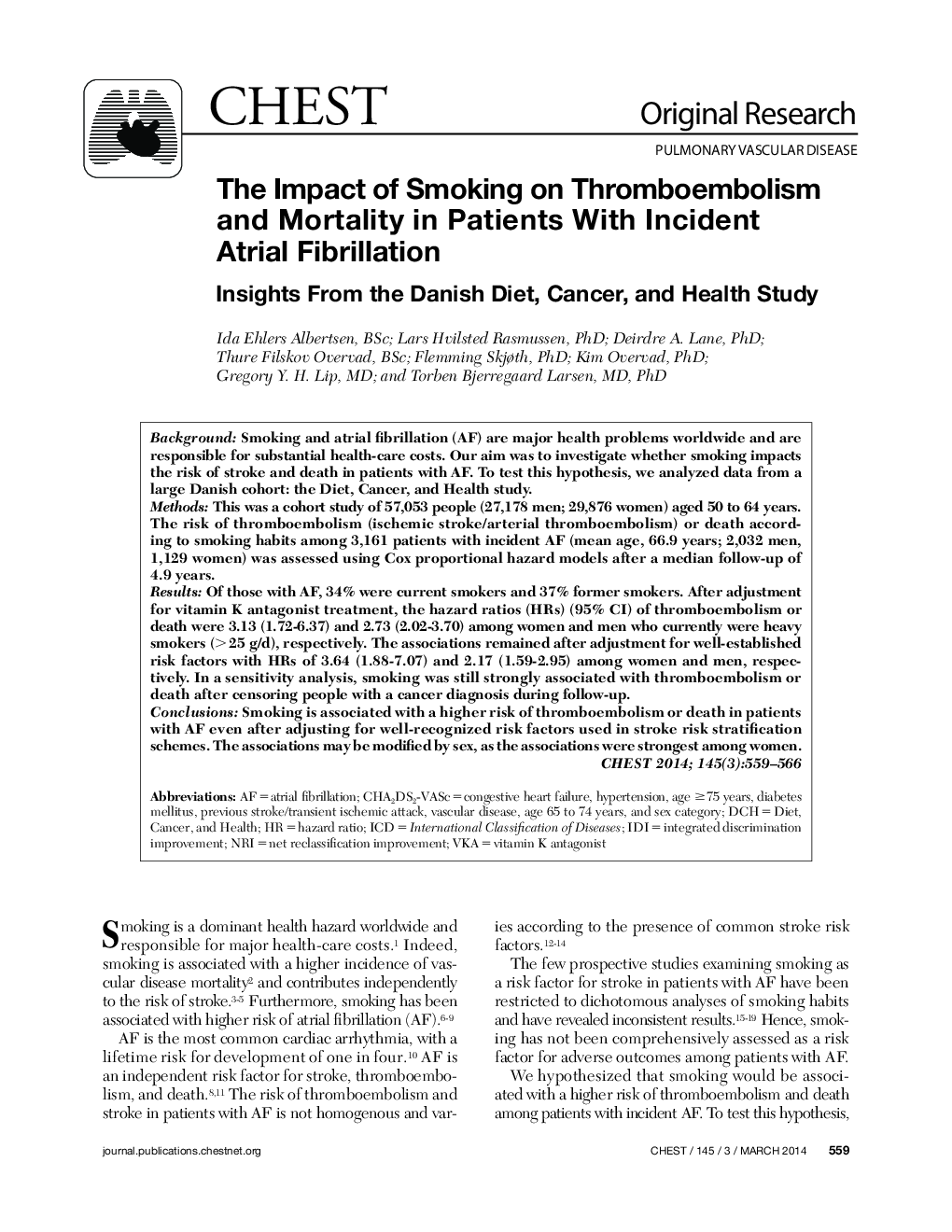| Article ID | Journal | Published Year | Pages | File Type |
|---|---|---|---|---|
| 2900025 | Chest | 2014 | 8 Pages |
BackgroundSmoking and atrial fibrillation (AF) are major health problems worldwide and are responsible for substantial health-care costs. Our aim was to investigate whether smoking impacts the risk of stroke and death in patients with AF. To test this hypothesis, we analyzed data from a large Danish cohort: the Diet, Cancer, and Health study.MethodsThis was a cohort study of 57,053 people (27,178 men; 29,876 women) aged 50 to 64 years. The risk of thromboembolism (ischemic stroke/arterial thromboembolism) or death according to smoking habits among 3,161 patients with incident AF (mean age, 66.9 years; 2,032 men, 1,129 women) was assessed using Cox proportional hazard models after a median follow-up of 4.9 years.ResultsOf those with AF, 34% were current smokers and 37% former smokers. After adjustment for vitamin K antagonist treatment, the hazard ratios (HRs) (95% CI) of thromboembolism or death were 3.13 (1.72-6.37) and 2.73 (2.02-3.70) among women and men who currently were heavy smokers (> 25 g/d), respectively. The associations remained after adjustment for well-established risk factors with HRs of 3.64 (1.88-7.07) and 2.17 (1.59-2.95) among women and men, respectively. In a sensitivity analysis, smoking was still strongly associated with thromboembolism or death after censoring people with a cancer diagnosis during follow-up.ConclusionsSmoking is associated with a higher risk of thromboembolism or death in patients with AF even after adjusting for well-recognized risk factors used in stroke risk stratification schemes. The associations may be modified by sex, as the associations were strongest among women.
